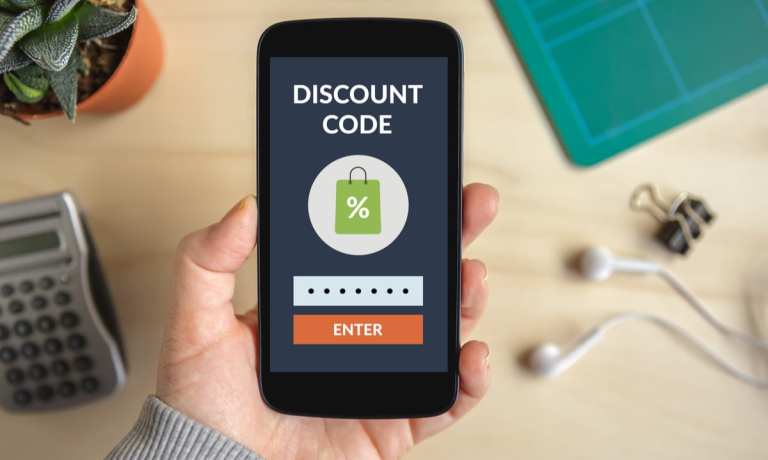Dueling Outlooks Disagree About Discount-Driven Holiday Selling

Nobel laureate Niels Bohr once quipped, “Prediction is very difficult, especially if it’s about the future.” If he thought physics predictions were tough, try 2020 retail sales. Even physicists won’t touch that one.
PYMNTS did, and the figures aren’t all that encouraging. PYMNTS’ latest look at holiday consumer confidence “shows a cautious population living paycheck to paycheck, ready to spend conservatively during the holidays and heading toward payment mechanisms that reflect that attitude.”
That’s in stark contrast to several sunnier perspectives, like that of the National Retail Federation (NRF), whose annual holiday spending outlook was surprisingly upbeat, expecting that “holiday sales during November and December will increase between 3.6 percent and 5.2 percent over 2019.”
By comparison, PYMNTS’ new survey of nearly 2,900 consumers looks very different, as over 63 percent said they are living paycheck to paycheck, with 26 percent of that group having trouble with household expenses. The other 37 percent are also living paycheck to paycheck, but not struggling as much. Either way, it’s hard to see how people in this state are going to break any spending records, online or off.
Dueling predictions aside, there will be holiday spending in 2020, and the vast majority of people will be looking for deals and discounts. To that end, coupon apps and discount shopping apps are what millions of people are “getting” for the holidays as they try to end a dreadful year on a cheerful note.
App-Happy Holidays
Finding ways to get people to part with disposable dollars has occupied the smartest minds in retail all year long. We know that a major trend this holiday season is buy now, pay later (BNPL) point-of-sale credit, which has grown geometrically in the past few years and is a major draw this season.
PYMNTS’ Provider Ranking of Alternative Credit Apps tracks movements in the space, where brands like Klarna and Afterpay continue to enjoy enthusiastic adoption at retailers.
Couponing is safer these days (no one running with scissors to clip them) as apps have been overtaken by digital elegance, putting the consumer experience first. PYMNTS’ latest Provider Ranking of Coupon Apps shows the slugfest between couponing apps heating up as the holiday shopping days tick down, with the Ibotta app holding the No. 1 spot for several months now.
“[We’ve] reached the point of critical mass awareness when it comes to paying with our phones,” Bryan Leach, founder and CEO of Ibotta, said in a press release this past summer. Mobile coupons are a big deal this holiday season, with Business2Community reporting that “well over half (61 percent) of survey respondents claimed that a high-value mobile coupon would motivate them to visit a physical store location. This is an opportunity for retailers to leverage their CRM systems to send personalized coupons and offers to customers based on their shopping history. It’s also an opportunity to drive traffic among new customers by offering attractive discount offers.”
Promos Make The Digital Shift
Advertising and promotional alternatives are getting attention as commonplace web ads, pixels, consumer tracking and anything having to do with using data is getting more and more difficult.
Relevant transactional and contextual advertising is finding traction, however, as digital ad industry news site ClickZ recently reported that “transactional advertising focuses on reaching consumers at the point of sale, motivating an immediate action or interaction with a business — not just online, but in stores with POS systems like Square and Stripe. This presents a huge opportunity for retailers to reach customers while they’re banking, actively shopping or just browsing for goods online or offline.”
Big Tech is getting in on the action as well, with tech news site Pocket-lint reporting that new features of the Microsoft Edge browser include “automatically [surfacing] coupons and promo codes. So, when you’re shopping online, the browser will show you any savings available as an alert. The discounts can then be applied to your cart.”
That report said that Microsoft Edge will also show price comparisons, noting that “both of these features directly rival coupon extensions such as Honey and Rakuten. Microsoft’s price comparison technology actually first debuted as part of the Collections feature, which, at the time, signaled it could transform Edge into a go-to browser for shopping.”
Read More On Discounts:
- Vera Bradley CEO: Customization and Interactive Experiences Transform In-Store Journey
- Save A Lot VP: Consumers Cross-Shop to Stretch Grocery Budgets
- Paycheck-to-Paycheck Vacationers Seize on Travel Discounts
- Shoppers Subscribe to Retailers’ Membership Programs for Beauty Deals